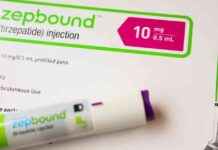Despite the recent FDA ban on compounding pharmacies producing copycat versions of Eli Lilly’s Zepbound and Mounjaro, a quick online search reveals that little has changed in the landscape of these medications. Websites such as Amble, EllieMD, Willow, and Mochi Health are still actively promoting tirzepatide, the key ingredient in Zepbound. While some platforms like Ivim have halted new patient intake, Mochi Health remains steadfast in its decision to continue offering these medications. Myra Ahmad, the CEO of Mochi, emphasized the company’s commitment to personalized care, aiming to provide tailored solutions for patients seeking weight-loss medications.
Compounding: A Personalized Approach to Medication
Compounding pharmacies play a crucial role in tailoring medications to meet the specific needs of individual patients. For instance, patients who may be allergic to certain ingredients in commercially available drugs or require alternative forms of medication can benefit significantly from compounded versions. Moreover, during periods of drug shortages, compounding pharmacies can step in to bridge the gap by creating larger quantities of essential medications.
The surge in popularity of copycat versions of Mounjaro, Zepbound, Wegovy, and Ozempic was largely fueled by the FDA’s designation of the brand versions as experiencing shortages. This led to a proliferation of compounding pharmacies producing GLP-1 class medications for weight loss and diabetes management. However, the FDA’s recent decision to remove Mounjaro and Zepbound from the shortage list signaled the end of mass compounding of these drugs.
Legal Implications and Industry Response
As the FDA cracks down on pharmacies compounding tirzepatide, the distinction between personalized formulations and blatant copies becomes a focal point of contention. While pharmacies like Mochi assert that their prescriptions are customized and not mere replicas of commercially available drugs, the FDA’s guidelines on what constitutes a copy remain a subject of debate.
Scott Brunner, CEO of the Alliance for Pharmacy Compounding, points out the fine line between acceptable compounding practices and illegal replication. Combining two drugs into one formulation, such as adding vitamin B12 to tirzepatide, could potentially violate FDA regulations. Pharmacies that continue to produce copies of tirzepatide may find themselves facing legal repercussions, risking their standing within the industry.
John Herr, a pharmacist and owner of Town & Country Compounding Pharmacy, made the difficult decision to cease compounding tirzepatide, despite facing backlash from hundreds of patients who relied on the medication. The financial implications of this shift are significant, with Town & Country offering tirzepatide at a fraction of the cost compared to Lilly’s retail prices.
The road ahead remains uncertain, with the FDA’s enforcement of the ban on mass compounding of tirzepatide looming large. While Lilly may consider legal action against non-compliant companies, the efficacy of such measures remains in question. Ahmad from Mochi Health remains optimistic, underscoring the importance of patient-physician relationships in guiding treatment decisions.
In the coming months, the FDA’s deadline for halting mass compounding of semaglutide, the primary ingredient in Novo Nordisk’s Ozempic and Wegovy, will bring further clarity to the situation. Companies like Hims & Hers Health have already signaled their intent to comply with these regulations, ensuring a smooth transition for patients with personalized dosing needs.
As the pharmaceutical industry navigates these regulatory changes, the emphasis on personalized care and adherence to FDA guidelines will be paramount in shaping the future of compounding pharmacies and the availability of essential medications. The evolving landscape underscores the delicate balance between innovation, patient care, and regulatory compliance in the realm of pharmaceuticals.



















